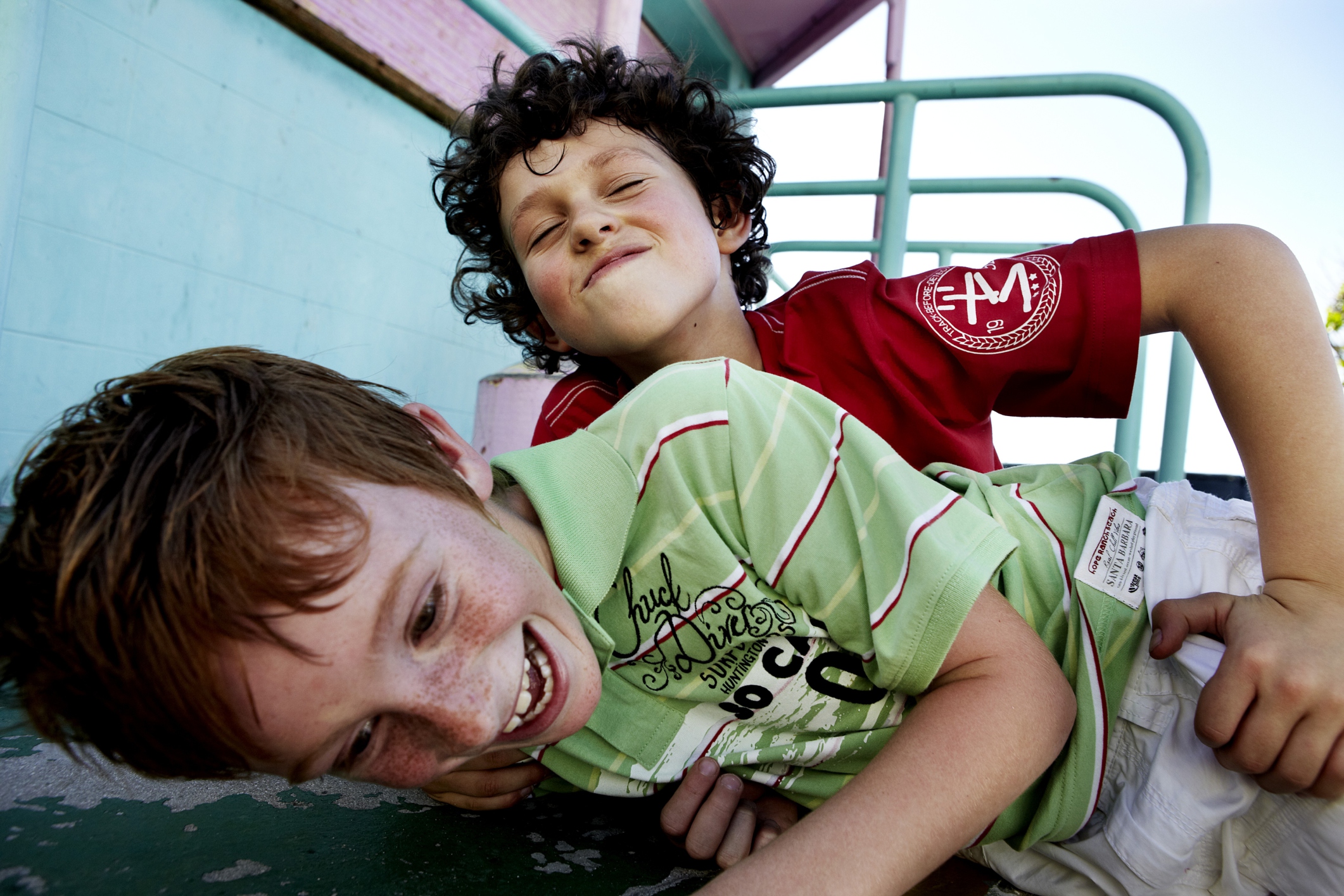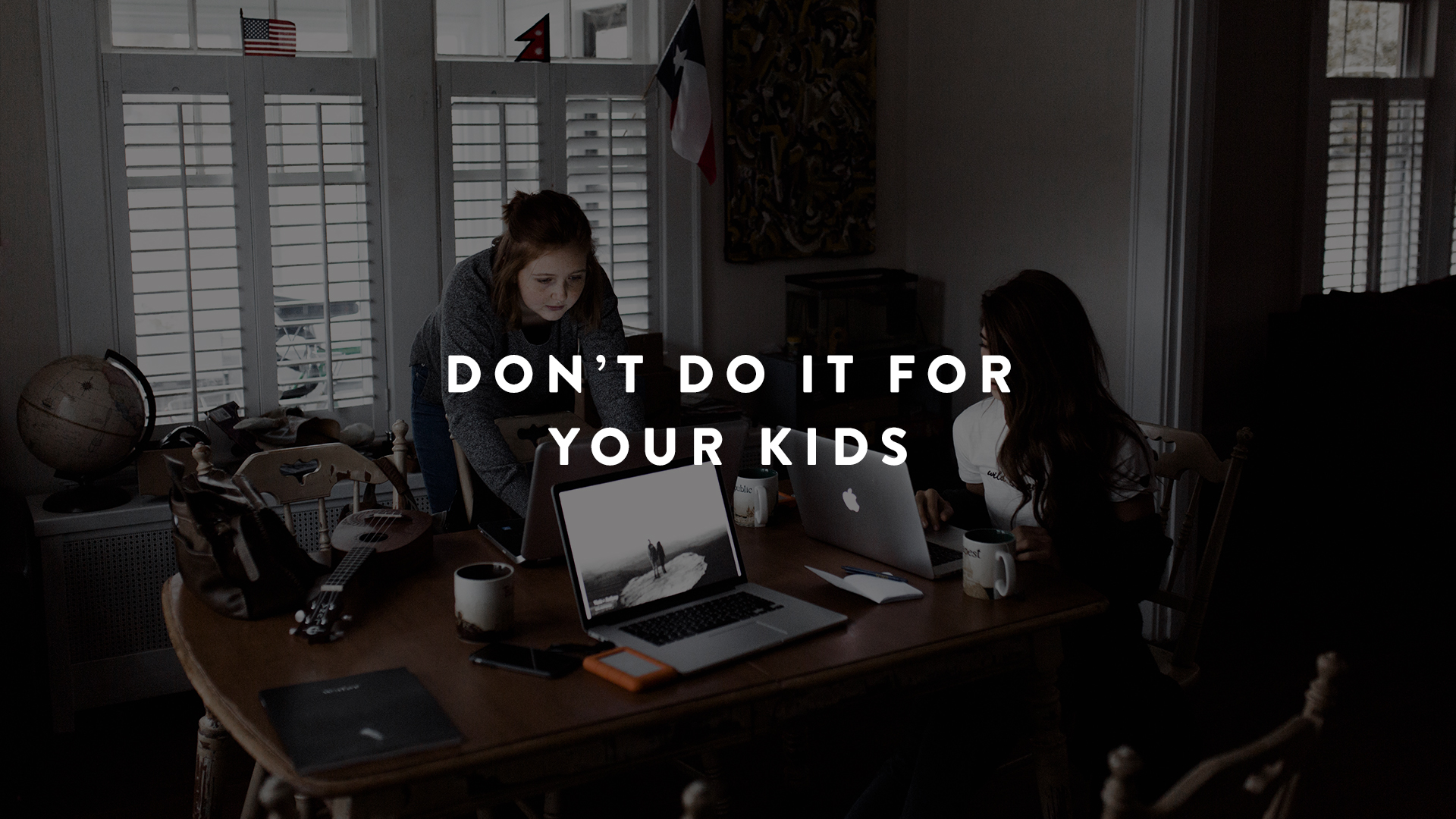by Sarah Anderson
My kids have taken an interest lately in watching our wedding video. It has been a fun thing to indulge in with them. They get to see the faces of friends and family they know so well, and grapple with comprehending how they weren’t even alive yet. It’s also been bittersweet. We have been married long enough to see that the faces of those at the wedding are different from the faces we know now. People have aged. Some have passed away. Relationships are different.
Engaging in this activity with my kids compels me to be a storyteller with them. I can invite them into my rusty recollections. I can show them mental snapshots of an unfamiliar world and connect the dots in their little lives before they even know there are dots to connect.
Telling stories gets me—and my kids—outside of the now in a way nothing else can. We slow down. We pause. We abandon dishes, laundry, noise and motion, and we simply listen.
It does for them what stories did for me growing up.
My dad has always been a great storyteller, telling his best stories around the dinner table. He could get and keep our attention as kids—and now adults—like no one else, captivating us with mischievous, barely credibly tales of his life as the only child in blue collar northern Kentucky town. I remember sitting there as a kid, absolutely consumed. He had a history. Which meant I had a history. I heard stories of a hard life with difficulties and challenges I had no understanding of and no context for, and hearing them made me see my dad in a more complete and whole way. His identity was bigger than what I saw before me. He was more than the sum of his parts.
Which means stories may be more than just a way to pass the time and slow us down. It could be that stories have a deeper meaning, and matter more than we realize. In the book “The Secrets to Happy Families,” Bruce Feiler suggests that children who hear, and learn their family’s story and narrative, create not just emotionally healthy children, but stronger and more foundational families as a whole.
More than that, there is a kind of story that matters more than any other. Dr. Marshall Duke calls it the oscillating family narrative, and he describes it as a story told with ups and downs.
There is heartache and there is hope. There is success and there are failures. There are dreams and there are disappointments. But the gift of this kind of story is the sense of family that comes from experiencing everything on the spectrum. Dr. Duke says it creates a strong “intergenerational self” because “they [kids] know they belong to something bigger than themselves.”
Which brings me back to the wedding video, and how cathartic it is for me, and how consequential it is for my children. I know, it isn’t really about the video. It’s about the remembering. Taking the time to look back for my kids’ sake and my own is a gift. It isn’t just an indulgence on my part. It is history making and history forming on theirs. It gives them a glimpse into who I am—a great reminder for me— and, by association who they can be—a big dream for them. It gives them a perspective, a depth, a richness that would otherwise be lost, or missed, or under valued.
So this week, take some time to remember with your kids. Share stories. Tell them stories of themselves. Of you. Of their grandparents. Invite them into the world that existed long before them so they are more equipped to enrich the world long after them. And then dream with them about the future. Get their minds imagining what could be, after giving them sight into what was.
Bruce Feiler says this may be a secret to a happy family. I say it is a practice and a preserver of a strong family.
For more on how stories matter, follow the conversation here.
 Sarah Anderson writes for the XP3 student curriculum at Orange. She is married to Rodney Anderson and is mom to two beautiful bouncy boys, Asher and Pace.
Sarah Anderson writes for the XP3 student curriculum at Orange. She is married to Rodney Anderson and is mom to two beautiful bouncy boys, Asher and Pace.





